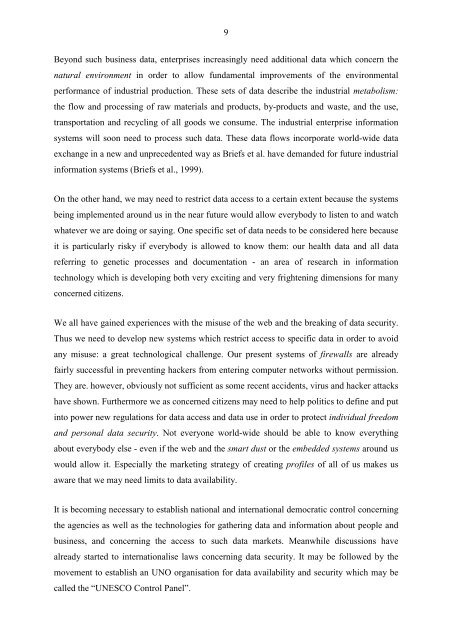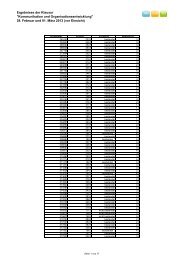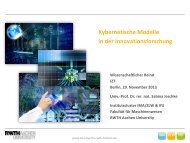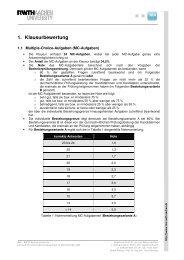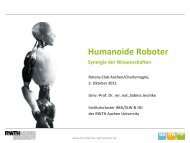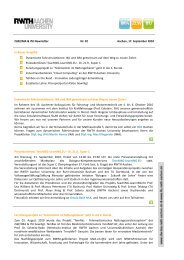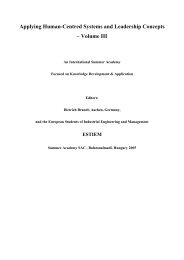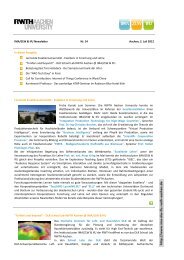Vol. II: Shaping Information and Communication ... - IMA,ZLW & IfU
Vol. II: Shaping Information and Communication ... - IMA,ZLW & IfU
Vol. II: Shaping Information and Communication ... - IMA,ZLW & IfU
Create successful ePaper yourself
Turn your PDF publications into a flip-book with our unique Google optimized e-Paper software.
9<br />
Beyond such business data, enterprises increasingly need additional data which concern the<br />
natural environment in order to allow fundamental improvements of the environmental<br />
performance of industrial production. These sets of data describe the industrial metabolism:<br />
the flow <strong>and</strong> processing of raw materials <strong>and</strong> products, by-products <strong>and</strong> waste, <strong>and</strong> the use,<br />
transportation <strong>and</strong> recycling of all goods we consume. The industrial enterprise information<br />
systems will soon need to process such data. These data flows incorporate world-wide data<br />
exchange in a new <strong>and</strong> unprecedented way as Briefs et al. have dem<strong>and</strong>ed for future industrial<br />
information systems (Briefs et al., 1999).<br />
On the other h<strong>and</strong>, we may need to restrict data access to a certain extent because the systems<br />
being implemented around us in the near future would allow everybody to listen to <strong>and</strong> watch<br />
whatever we are doing or saying. One specific set of data needs to be considered here because<br />
it is particularly risky if everybody is allowed to know them: our health data <strong>and</strong> all data<br />
referring to genetic processes <strong>and</strong> documentation - an area of research in information<br />
technology which is developing both very exciting <strong>and</strong> very frightening dimensions for many<br />
concerned citizens.<br />
We all have gained experiences with the misuse of the web <strong>and</strong> the breaking of data security.<br />
Thus we need to develop new systems which restrict access to specific data in order to avoid<br />
any misuse: a great technological challenge. Our present systems of firewalls are already<br />
fairly successful in preventing hackers from entering computer networks without permission.<br />
They are. however, obviously not sufficient as some recent accidents, virus <strong>and</strong> hacker attacks<br />
have shown. Furthermore we as concerned citizens may need to help politics to define <strong>and</strong> put<br />
into power new regulations for data access <strong>and</strong> data use in order to protect individual freedom<br />
<strong>and</strong> personal data security. Not everyone world-wide should be able to know everything<br />
about everybody else - even if the web <strong>and</strong> the smart dust or the embedded systems around us<br />
would allow it. Especially the marketing strategy of creating profiles of all of us makes us<br />
aware that we may need limits to data availability.<br />
It is becoming necessary to establish national <strong>and</strong> international democratic control concerning<br />
the agencies as well as the technologies for gathering data <strong>and</strong> information about people <strong>and</strong><br />
business, <strong>and</strong> concerning the access to such data markets. Meanwhile discussions have<br />
already started to internationalise laws concerning data security. It may be followed by the<br />
movement to establish an UNO organisation for data availability <strong>and</strong> security which may be<br />
called the “UNESCO Control Panel”.


